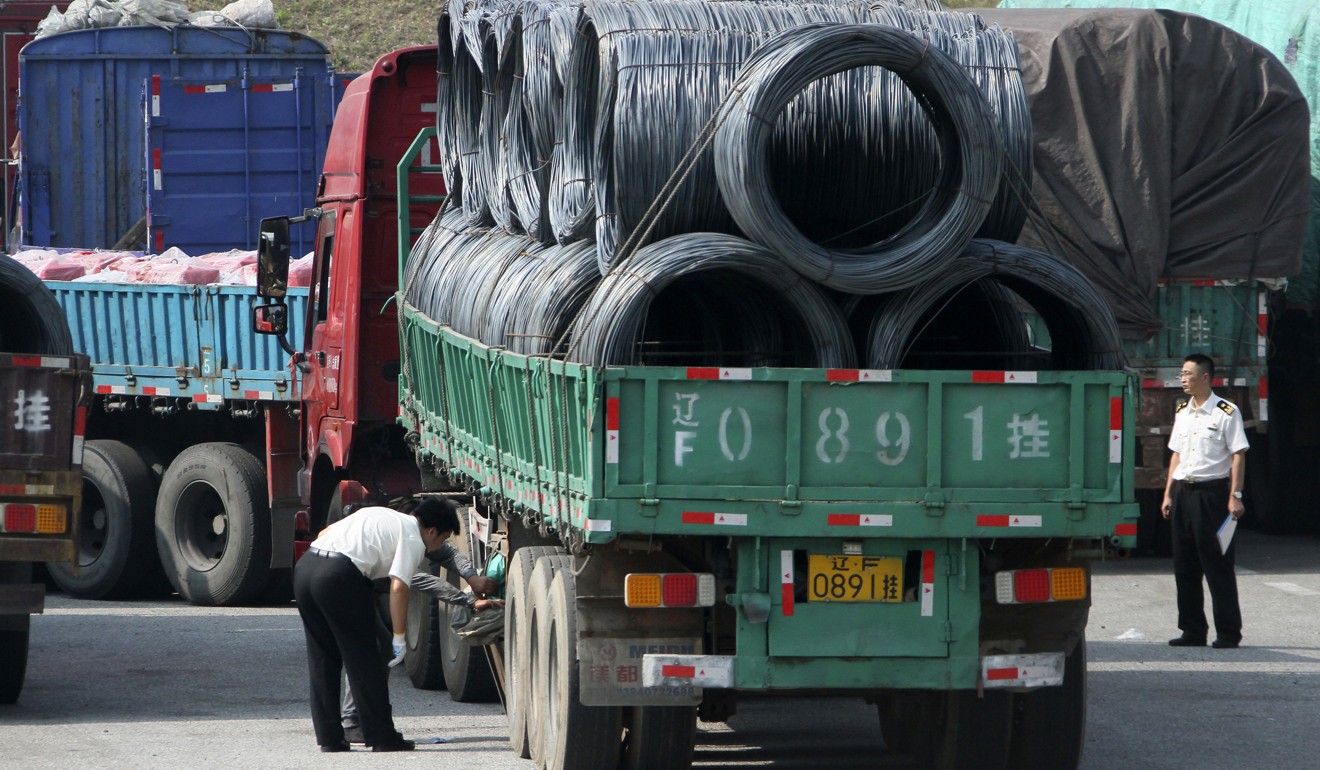
China’s biggest port trading with North Korea defaults on US$150 million bond
Dandong Port Group has been hit by ban on imports of coal, textiles and seafood from the isolated regime
Dandong Port Group – which manages the largest Chinese port trading with North Korea – defaulted on a 1 billion yuan (US$150.38 million) corporate bond this week, after sluggish business hit profitability.
Nearly 90 per cent of North Korea’s foreign trade is with China, and at least two-thirds of trade between North Korea and China goes through border city Dandong, in Liaoning province. The port city is a gateway for Chinese trade with countries in Northeast Asia and has an annual throughput of 200 million tonnes. Official data does not reveal how much of that is with North Korea.
But relations between Beijing and Pyongyang have soured, with China under pressure from countries including the United States to do more to rein in North Korea’s nuclear weapons ambitions. The port of Dandong has been particularly hard hit by Beijing’s move to ban imports of coal, textiles and seafood – and cut off oil shipments to the isolated regime – in line with UN Security Council sanctions.
Until the bans, one thriving business at the port was imports of anthracite – a type of coal that burns with little flame and smoke – from North Korea. The country became China’s biggest source of anthracite in 2013, beating Vietnam, and the following year the coal became China’s No 1 import from North Korea.
Business had slowed after Beijing stopped North Korean boats transporting coal from docking at the Dandong port at the end of 2015. China then halted all coal imports from North Korea in August.

The port group was founded in 2005 by four Hong Kong-based companies. It is indirectly controlled by local firm China Rilin Construction Group. Rilin chairman Wang Wenliang was one of 45 members expelled from the National People’s Congress, China’s legislature, in a vote-buying scandal last year.
In a disclosure to the Shanghai Stock Exchange on Monday, Dandong Port said it could not make the 1 billion yuan principal on a three-year bond that was issued with 5.86 per cent interest in 2014 and due on October 30.
The announcement caught many investors off guard as the company had not put out any advance risk warnings that it would default, as is required.
It said in a half-year bond report released in August that the bond was “normal” but did not rule out the possibility of being unable to repay it as the company’s overall debt level remained high.
Some 76 per cent of the company was financed by debt by the end of June, according to the report. Of its total debt of 37.1 billion yuan, close to half would be due within one year.
“As the port’s economic situation weakens, throughput has also fallen,” the report said. “At the same time, our logistics business has declined, eroding our revenue.”
In the first half, Dandong Port’s revenue fell by 14.75 per cent from a year ago to 2.83 billion yuan. Its main businesses – port handling, storage and logistics – all fared worse in the first half than in the previous year.
Chinese rating agency United Ratings in June downgraded its outlook on two bonds issued by Dandong Port from “stable” to “negative”.

